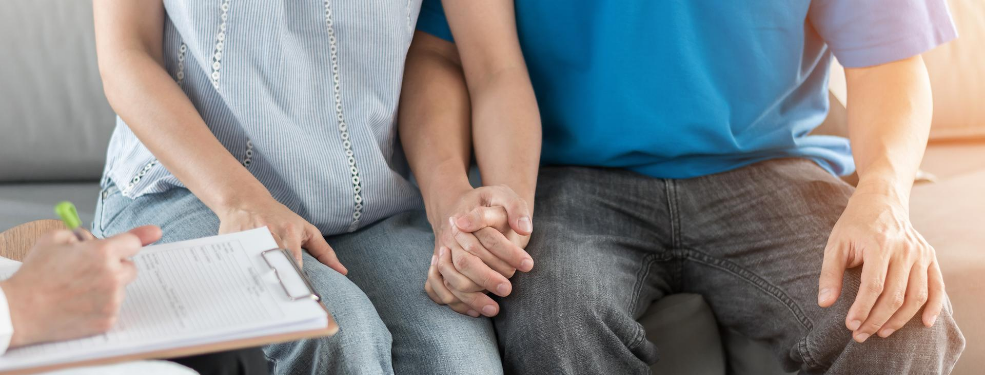Looking into adopting a child is already an enormous decision that could change the life of any person or couple. There are many factors that go into making sure an applicant is suitable to provide the right, loving home for a child whose birth family cannot raise them. And a careful, staged process of assessing the behaviour and qualities of prospective new parents before it’s decided if a child will be matched to them.
When successful an adoption will provide a child with a stable home and strong parents to nurture them as their own, giving them a better chance at having a brighter future.
But has the rigorous process of adoption been affected by the Covid-19 crisis? As with nearly all aspects of our lives impacted since earlier this year, it has been an evolving situation. But adoption specifically has not drawn the same level of questioning as other day-today activities and services used by people in far greater numbers.
What changes have there been?
In Northern Ireland new guidelines were issued through the Department of Health for providers of adoption services on July 7th. This maintained that every effort should be made to continue services throughout the pandemic and that agencies should work together with shared thinking around their approaches with various challenges.
Children’s social care regulations have been modified for a period up to six months with legislation made by the Department of Health, The Children’s Social Care (Coronavirus) (Temporary Modification of Children’s Social Care) Regulations (Northern Ireland) 2020.
While full accompanying guidance can be read here, changes include social workers being permitted to maintain contact remotely with children placed for adoption who don’t require face to face visits.
The regulations also now give agencies more flexibility with timescales for reviewing a child’s case. These extensions allow up to an additional three months than the prior lengths of time to review the following:
- A case where a child placed for adoption has not received an application for adoption within six months (rather than three) of their placement.
- A case where a child freed for adoption has not found a new home with an adoptive family within nine months (rather than six).
How has the process been affected for children, families and prospective adopters?
While all of the above guidance is to be followed in conjunction with the latest advice around Covid-19 from the Public Health Agency, the same legislation has also included points to help children still find new, better homes throughout the pandemic while keeping all parties involved as safe as possible and preserving the integrity of the process.
Communication is vital so it is important that prospective adopters are responsible when it comes to the virus and if they feel they may have symptoms then they should get tested and inform their social worker/adoption agency at the earliest stage if they have had to self isolate.
Despite possible risks around contact, introductory meetings have not been banned completely. Since every child has different needs and circumstances, the DoH has urged HSC Trusts and Voluntary Adoption Agencies to make decisions on a case-by-case basis, ultimately striving to still progress as many cases as they can so that children are closer to being in a caring environment.
To reduce potential spread of coronavirus, services are using remote video communication rather than face to face where possible for stages including introductory meetings, panels and discussions with families and adoptive parents.
For some children however this might not be sufficient and so alternative arrangements or postponements may need to be made. Services are expected to be flexible and use common sense to do what’s in the best interest of the child, while prioritising those families which require visits for adoption support and advice according to need.
In terms of training for adoptive parents, these sessions will either have been temporarily suspended or replaced with online courses. HSC Northern Ireland has provided a wealth of digital resources so that prospective adopters and foster carers can continue to educate and prepare themselves for when they may be able to make their application for a child. Those undertaking training are asked to keep their supervising social worker up to date with anything they have completed.
HSC Trusts and Voluntary Adoption Agencies have also been granted the option to progress applications without the health assessment and/or Access NI Check as long as these are completed before the joint visit with the senior social worker near the end of the assessment stage.
Contact between family members living in different households should continue to be in step with the latest advice from government to prevent coronavirus spread, while any visits need to ensure appropriate social distancing and hygiene practices are being followed.
If contact orders are in place then contact is expected to continue with the same regularity, maintaining awareness of safety guidelines, using video communication if necessary, and having arrangements reviewed by the responsible social worker on a weekly basis. HSC Trusts are advised to seek clinical and/or legal advice if contact arrangements cannot be agreed to.
As the threat of Covid-19 evolves there are frequent updates to rules the general public should follow as well as how services are being delivered. With adoption it is no different and in order to stay informed and know what to expect you should check with the relevant authorities regularly. Keep in touch with whichever adoption provider you have chosen, read the NHS website for coronavirus information, or you can get support from Adoption UK’s dedicated Helpline team.
For legal advice on any aspect of adoption in the current circumstances or in future, Harry McPartland & Sons Solicitors can provide reliable and professional assistance for you or your family. Reach out to us with a call, email or message and we’ll arrange a free consultation.

